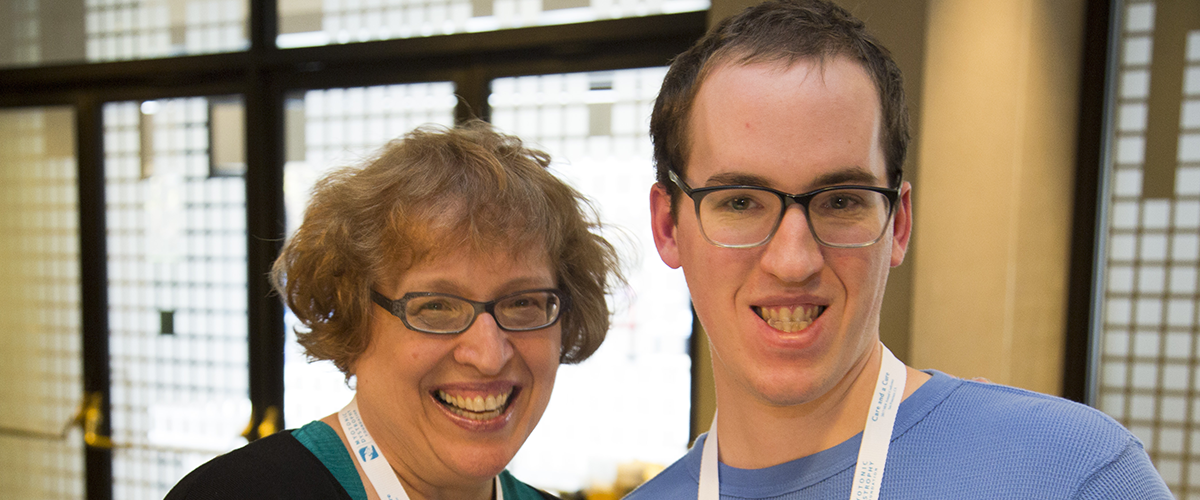The Myotonic Dystrophy Foundation is excited to introduce Understanding Myotonic Dystrophy, a new series of short educational animations designed to educate people living with myotonic dystrophy (DM) and their healthcare providers!
Our third animation “Understanding Myotonic Dystrophy – Inheritance of Myotonic Dystrophy Type 2 (DM2)”, explains how DM2 is passed down from generation to generation and highlights the importance of genetic testing. This animation is a valuable resource for individuals and families living with DM2, helping them deepen their understanding of DM, raise awareness within their families, and educate others about myotonic dystrophy.
Interested in learning about Myotonic Dystrophy Type 1 (DM1)? Click here to watch "Understanding Myotonic Dystrophy: Inheritance of Myotonic Dystrophy Type 1 (DM1)"!
We are sincerely thankful to all physicians, care providers, and patients for their help providing suggestions, opinions, and input regarding content and design throughout this process. Please let us know what topics you would like us to cover in a future animation. Click here to share your feedback!
Read the Transcript - Understanding Myotonic Dystrophy: Inheritance of Myotonic Dystrophy Type 2 (DM2)
Doctor: "David, we may have figured out the cause of your muscle pain and stiffness, as well as your GI issues and early cataracts. Your genetic test results confirm that you have Myotonic Dystrophy Type 2. Known also as DM2, it is typically an adult-onset muscular dystrophy."
David: "Wait… what? I had no idea all of those symptoms are related."
Doctor: "DM2 is an inherited genetic condition caused by an expanded repeat in the CNBP gene. It affects many body systems, most commonly the muscles, heart, eyes, and the endocrine system, which controls your hormones."
Lisa: "How did he get it?"
Doctor: "DM2 is inherited. Either your father or mother can have it. If either one of the parents has it, there’s a 50% chance of passing it to their children with each pregnancy. This is known as autosomal dominance. In DM2, symptoms usually don't get worse from one generation to the next."
David: "Wait… my dad always complained about muscle pain and he had early cataracts. Could that have been DM2?"
Doctor: "It’s possible. DM2 often goes misdiagnosed for many years."
Lisa: "What about our kids, could they have it too?"
Doctor: "Each of your children has a 50% chance of inheriting DM2. If they are affected they may also develop symptoms like insulin insensitivity, muscle weakness, daytime sleepiness, or heart conditions."
David: "What do we do now?"
Doctor: "I recommend seeing a genetic counselor for your children, so they can learn about their disease risks, genetic testing, family planning, and potential symptom management options."
Lisa: "Could David’s symptoms get worse?"
Doctor: "Yes, David’s symptoms may get worse. But, there are things we can do. We will need to have a multidisciplinary care team monitor him regularly. DM2 progresses differently for everyone. Some people develop significant weakness, pain, fatigue, or other symptoms, while other people may only experience mild muscle pain and stiffness for years. Getting your genetic test was an important first step. Now, we can make a clinical care and monitoring plan specific to you."

